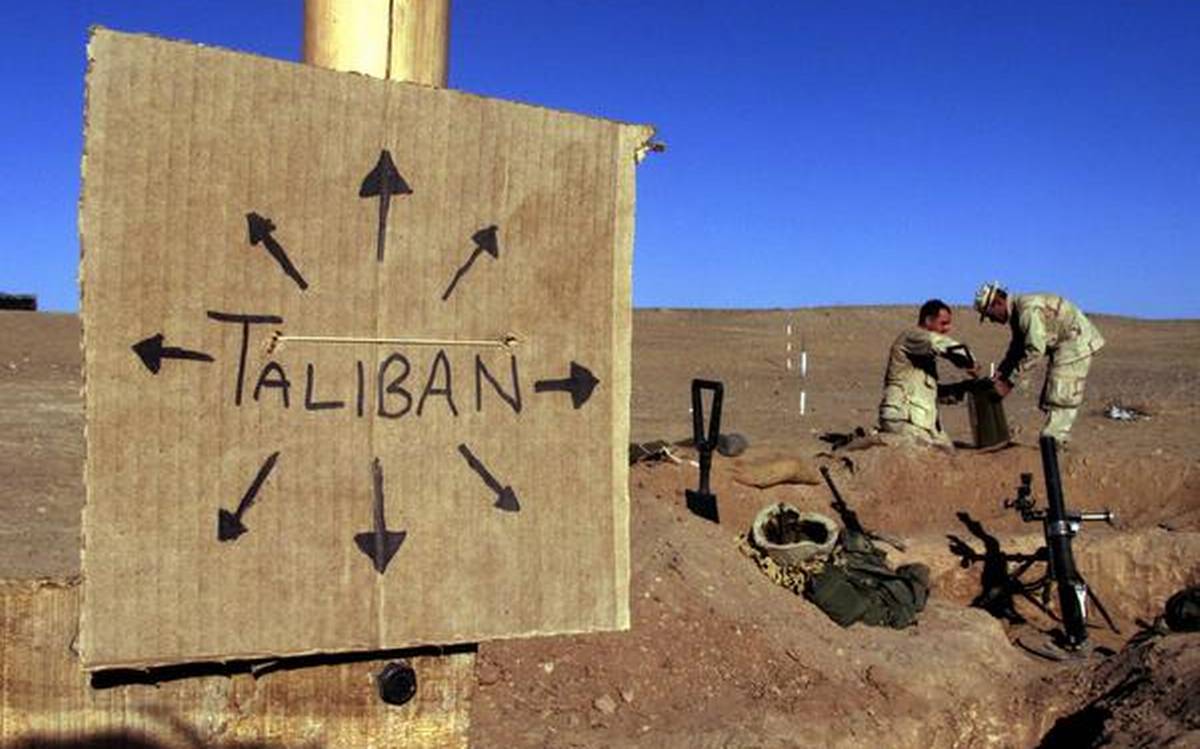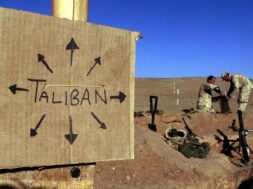
Afghanistan: A volcano even fire-spitting Dragon dare not step into
Virendra Pandit
New Delhi: After a two-decade-long hiatus, the Taliban’s returning to absolute power in Kabul on Sunday has once again turned Afghanistan into a cauldron no ‘superpower’ is ready to step into this “graveyard of empires”.
Not even the wannabe ‘superpower’ People’s Republic of China (PRC).
With America abandoning Kabul quickly, and President Ashraf Ghani reportedly fleeing to Tajikistan, the Islamist militia’s return to the “Islamic Emirate of Afghanistan” is complete.
Three geopolitical superpowers of the day—Britain, the USSR, and the USA—burnt their fingers in Afghanistan in the last couple of centuries. Therefore the fourth, China, is unlikely to fill the ‘vacuum’ either—it is wary of the West’s carefully laid strategic trap.
Britain and America did not share any geographical borders with Afghanistan and found it easy to flee, leaving Kabul to fend for itself. The Soviet Union also had few qualms leaving Afghanistan, bankrupt and soaked in blood. If anything, the USSR’s own dismemberment in 1991, ironically, made Russia safer than before: its breakaway Muslim provinces—Tajikistan, Uzbekistan, and Turkmenistan—actually provided a buffer to Moscow from the Taliban militia.
China’s case is different. It shares a 76-km-long border with north-eastern Afghanistan through the volatile mountainous region it is rather unfamiliar with. Its Uighur Muslim-dominated Xinjiang province has suddenly become Beijing’s jugular vein. Millions of these native Muslims incarcerated in labor camps for years are waiting to be ‘liberated’ by the Taliban from the clutches of the People’s Liberation Army (PLA). The Taliban are reported to have trained hundreds of Uighur Muslims for this coming war in Afghanistan’s Badakhshan province, bordering Tajikistan, from where they can enter Xinjiang through the Wakhan Corridor.
The Islamist militia’s recent blitzkrieg in Afghanistan was facilitated by the quiet and sudden withdrawal of the US-led forces, scheduled to be completed by August-end. Many are outraged, condemning President Joe Biden along predictable lines. Countries are closing down embassies and evacuating their citizens. The UN Security Council will also pass a pro forma resolution.
Is that all?
Nope. It’s here that the Taliban’s second flowering season begins!
The two countries most frightened of this fait accompli are the ones who had helped America raise the Taliban in its infancy against Russia: China and Pakistan. In the changed geopolitical scenario, they are now directly in the Taliban’s firing range: uneasy friends turning into sworn enemies.
In fact, their panic has been manifesting for weeks. Islamabad is worried about the possible creation of a “Greater Pashtunistan”, carved out of large swathes of Afghanistan and Pakistan, and is now fully dependent on China for its protection.
China is also alarmed. As soon as the Americans prepared to pull out, China’s Foreign Minister Wang Yi, on July 28, formally met in Tianjin with a nine-member Taliban delegation, including Mullah Abdul Ghani Baradar, the hardline Muslim group’s co-founder and deputy leader, who is now likely to be the next President of Afghanistan.
Caught between the devil and the deep sea, a reluctant Wang tried to humor the militia by publicly acknowledging the Taliban as “a crucial military and political force in Afghanistan that is expected to play an important role in the peace, reconciliation and reconstruction process of the country”. The Taliban also sought surface-to-surface missiles from China, to which he did not respond.
His statement came just 12 days after Chinese President Xi Jinping assured his Afghanistan counterpart, Ashraf Ghani of all help, promising “China’s firm support of the Afghan government to maintain the nation’s sovereignty, independence, and territorial integrity”.
Wang also urged the Taliban to “build a positive image and pursue an inclusive policy,” though human rights”, something Beijing itself has been accused of violating everywhere.
The Taliban are aware that China tried to hedge its bets and keep its eggs in both the baskets in a bid to become a mediator between the Ghani government and the militia. America smelt the rat and did not allow this, It quickly fled the war-torn country, giving the Taliban a walkover, and a veto. America has long mastered the art of fleeing a country after an inconclusive and expensive war. Earlier, it had fled from Vietnam as well! Iraq is next in line.
Now, Afghanistan is in a unique situation: the Taliban can launch attacks in Xinjiang at will but the People’s Liberation Army (PLA) is unlikely to set foot on the Afghan soil, lest it gets roasted like the American barbecue in an unfamiliar cauldron.
For the fear of the Taliban using Chinese weapons against the PLA in Xinjiang, Beijing is unlikely to arm the militia the way it did before. America may, therefore, ‘donate’ weapons to the Taliban, and have a ringside view of a now- affordable geopolitical war, and the bleeding of China.
Being has already burnt its fingers through investments in the Amu Darya basin oil project and Aynak copper mine. Now it is concerned over how to protect the existing Chinese investments in Pakistan and the possibility of the Baluchs aligning with the Taliban.
That is why Wang tried to cool down the Taliban when he urged it to “sever all ties with all terrorist organizations, including the East Turkestan Islamic Movement (ETIM)” in Xinjiang.
Interestingly, Washington removed ETIM from its Terrorist Exclusion List in November 2020!
The Taliban ranks may soon swell with battle-hardened fighters returning from Syria also joining it to snare China from Tajikistan as well. Its associate Tehrik-e-Pakistan Taliban (TTK) knows what are the softer Chinese targets in Pakistan. TTK had recently claimed responsibility for a Quetta hotel bombing that targeted Chinese nationals in Pakistan on April 22 and is seen as the group responsible for other similar attacks that claimed some Chinese nationals’ lives.














